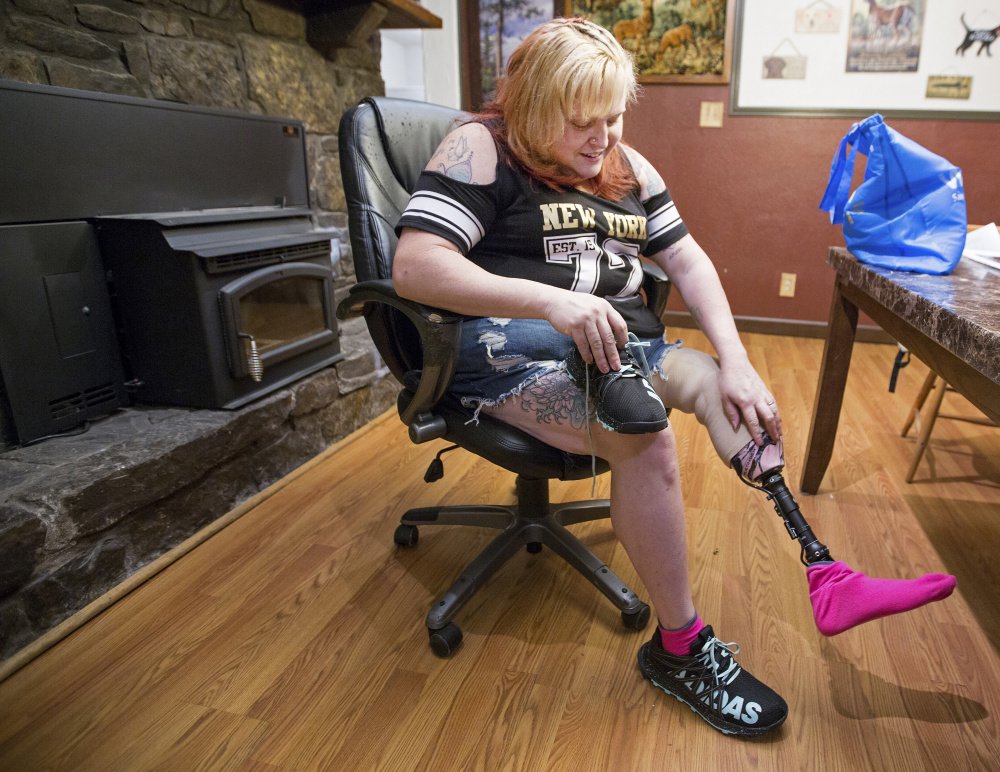There is yet another scandal at the Department of Veterans Affairs, and this time Maine is at the center.
An investigation by USA Today of settlement deals between the VA and doctors, nurses and other medical workers found at least 126 involved fireable offenses, including sexual harassment, improper relationships, neglect and incompetent care. In about 75 percent of those cases, the VA agreed to purge negative personnel records and provided neutral or positive professional references.
What’s more, the investigation found 88 cases in which veterans were harmed by mistakes committed by Dr. Thomas Franchini, a podiatrist at the Maine VA hospital in Togus.
Later called a “dangerous surgeon” in a sworn deposition by his surgery chief, Franchini was as a result of his many mistakes declared unfit for the VA hospital in 2010. However, the VA notified neither state nor federal clearinghouses designed to collect information on bad doctors in order to protect public health; it took the agency more than two years to inform even Franchini’s patients of their substandard care.
Giving underperforming doctors a soft landing at another hospital is seen as an issue across health care. That’s a problem whether the providers are public, as in the VA’s case, or private, and it shouldn’t be tolerated.
But the investigation and other reporting on Franchini point to larger problems at the VA, ones that call into question the agency’s institutional ability to root out and solve its own problems, as well as its desire to do what is best for the veterans under its care.
TRAIL OF WRECKAGE
Franchini was hired in 2004 and stepped down in 2010 after he was told he would otherwise be fired. According to a lawsuit filed by six of his former patients as well as the VA itself, he left a trail of wreckage in his wake. (Franchini denies the accusations.)
The patients represent different branches of service and a wide range of ages, but the stories are similar. Surgical mistakes such as incorrectly placed plates and screws, improperly fused joints and poorly implanted bones led to years of pain and limited mobility, not to mention additional surgeries.
In the most egregious case, April Wood, now 42, was forced to have her leg amputated below the knee after Franchini messed up her initial surgery.
All six were notified of Franchini’s errors by the VA in 2013 along with the podiatrist’s other former veteran patients. By that point he had been in private practice for more than two years, time his former patients had spent trying to find answers for — and live life with — their unending pain.
Unfortunately, that delay put them outside Maine’s three-year time limit for malpractice suits. A judge will now decide whether the VA “fraudently concealed” the findings, which would allow the suit to continue.
Even if the VA didn’t conspire to nullify any lawsuits, it doesn’t speak well of the agency — it makes the issue one of competency rather than ill intent.
MANY QUESTIONS
What took the investigation so long? Why did the VA wait until 2013 to tell Franchini’s patients of the poor care, when officials knew in early 2010 the doctor wasn’t fit for a VA hospital?
Why are the revelations in the USA Today investigation so surprising if these lawsuits have been around for years? Are these issues the result of bad personnel, or does underfunding play a role? Would the VA ever have acknowledged these problems if there were not lawsuits and newspaper articles?
In response to the reports, VA Secretary David Shulkin ordered that future settlements involving payments of more than $5,000 be approved by top VA officials in Washington, rather than regional personnel. A trio of lawmakers, including Maine Rep. Bruce Poliquin, R-2nd District, has proposed legislation to require medical professionals to report bad behavior directly to licensing.
Those actions are a good start — but they amount to cosmetic changes to an agency that clearly has deeper problems.
Send questions/comments to the editors.



Comments are no longer available on this story